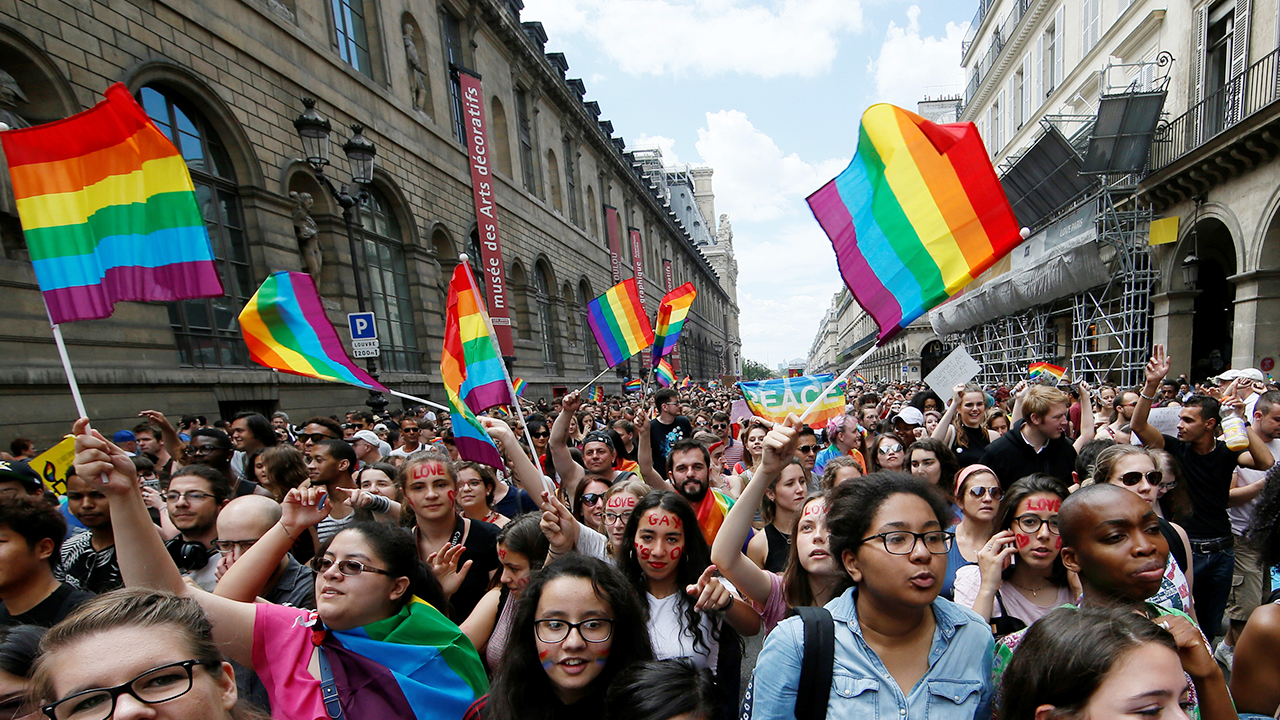Earlier this year, the Southern Poverty Law Center (SPLC) reported on an overlooked area of work undertaken abroad by the Christian Right legal powerhouse Alliance Defending Freedom (ADF): fighting any advancement of transgender citizens’ right to gender recognition by the state.
Many countries in Europe have sterilization laws requiring transgender citizens to undergo gender reassignment surgery and/or prove their infertility before obtaining legal documents that reflect their gender identity — this despite the fact that many transgender citizens do not want or cannot afford such surgeries. A 2009 report from the Council of Europe’s Commissioner For Human Rights stated “It is of great concern that transgender people appear to be the only group in Europe subject to legally prescribed, state-enforced sterilization.”
In 2015, ADF filed a brief in the A.P., Garçon et Nicot v. France case in defense of the sterilization requirement for the legal recognition of transgender people in some European countries. In a widely celebrated decision for LGBT advocates across Europe, the court sided against ADF in April 2017, ruling that the sterilization requirement for legal gender change was a violation of human rights.
But ADF continues to support anti-trans causes at the European Court of Human Rights (ECtHR), repeating the same arguments and junk science used in the A.P., Garçon and Nicot v. France case. Most notably, ADF has filed briefs in four cases to prevent the easing or streamlining of legal gender recognition processes in Bulgaria (Y.T. v Bulgaria), Russia (X v. Russia and Y.P. v. Russia) and Macedonia (X v. the former Yugoslav Republic of Macedonia.)
In the Macedonian and Bulgarian cases, ADF continues to advocate for “biological sex change” as a requirement for legal gender recognition. In the Macedonian case, a transgender man was asked to undergo genital surgery for his gender identity to be legally recognized, while in the Bulgarian case a transgender man saw a similar request denied because his gender reassignment treatment was not equivalent to a “change of sex.”
According to the brief submitted by Transgender Europe in X v. the former Yugoslav Republic of Macedonia, this demand for an “irreversible transformation of appearance” is equivalent to that “required by the French judiciary as the precondition to the LGR [legal gender recognition] should be considered a mandatory sterilisation requirement”, and is precisely what was ruled out in the A.P., Garçon and Nicot v. France.
The European briefs show ADF using an argument familiar to American audiences, where states’ rights has long been a rallying cry for discriminatory legal regimes. For the Christian Right specifically, this has evolved into a religious freedom argument used to push back against government policy that protects LGBT rights. Similarly, at ECtHR, ADF is pointing to the diversity of legislation on transgender issues across the Council of Europe, claiming countries should be allotted a “margin of appreciation” (i.e. discretion) on transgender issues. In ADF’s opinion, ECtHR should not rule on such sensitive cultural issues, despite the fact that they fall squarely within the realm of human rights.
But much like in the religious freedom context, the content of ECtHR briefs shows that ADF is not so much motivated by a care for overreaching government as much as it is by its profound anti-LGBT bias. Like in the A.P., Garçon and Nicot v. France case, ADF briefs in the Bulgarian, Macedonian and Y.P. v Russia cases all peddle anti-transgender science, such as the idea that being transgender is a mental illness.
Using the World Health Organization definition of transgenderism as a disease, despite it being scheduled to be updated and potentially removed from the list of mental disorders in 2018, ADF’s briefs ponder whether gender identity “is wholly a psychological issue or rather is associated with differentiation in the brain.” They then go on to cite Dr. Paul McHugh, a noted anti-LGBTQ junk science peddler who has described being transgender as a “mental disorder” and as “an illness.” As the LGBT civil rights organization Human Rights Campaign wrote in “McHugh Exposed,” a report exposing McHugh’s use of junk science, “McHugh’s false, non-scientific assertions have been used by anti-equality activists in state legislatures and courtrooms to defend discrimination against LGBTQ people.” His scientific work has been debunked time and again.
The stringency of ADF’s challenge to transgender rights is most apparent in X v. Russia, a case concerning a person’s right to change their legal name from a traditionally male to a traditionally female name. ADF’s brief for that case sides with a Russian court to declare that a person shouldn’t be able to change their name to one matching their gender identity, under the precept that names should be in conformity with a person’s biological sex. “Imposing a uniform procedure on member states would mean that a person’s registered sex on identity documents will no longer align with their gender specific name.” ADF’s brief goes on: “In certain countries — like Russia — names are strongly gendered with the resulting possibility for confusion and error regarding identity.” To accept this, ADF ventures, would mean to “officially recognize changes based solely on a radical idea of self-determination.”
Though the verdict for these four cases is still pending, the internationalization of ADF’s rhetoric and agenda is ramping up. ADF International is pursuing the same type of “religious freedom” causes that it always has in the United States on European soil. In the ECtHR alone, ADF has submitted legal briefs on such topics as defending the right to homeschool children, to refuse to perform abortions, or taking position against euthanasia.
In another revealing case, the 2016 case of Sousa Goucha v. Portugal, ADF filed a brief defending a Portuguese television station’s right to use satire after it described a gay television host as a woman, prompting the host to file a complaint. This bizarre intervention, like ADF’s attempts to restrict transgender people’s abilities to obtain legal recognition for their gender identity, perhaps best reveals one of ADF’s underlying motivation: opposition to LGBT rights around the world.



